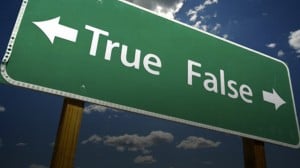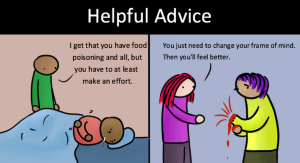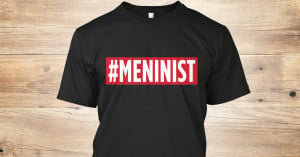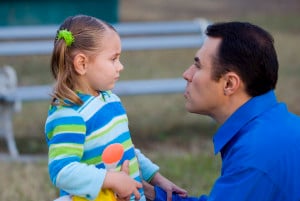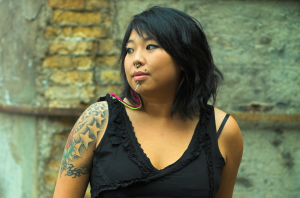Originally published on Medium and republished here with permission.
I shared The Establishment’s article “The White Male Effect Is Real and Dangerous to Us All” by Soraya Chemaly, and a sweet former intern who I really am quite fond of posted the quintessential, archetypal #NotAllMen argument, full of male fragility, hurt feelings, and a desire to be loved and respected and validated.
Now, I don’t always have the energy to try to educate someone who may (or may not) willfully misunderstand me the same way they have misunderstood the point of such articles.
But sometimes you feel a glimmer of hope in your heart that white male allies (or white feminists or non-Black people of color or non-Indigenous people of color) will hear you, will evolve, and will become happier, healthier, more self-aware, open, and humble people even when norms prefer we keep our outdated thinking on a pedestal.
Here is his comment, split into sentiments that I respond to:
Former Intern: “Speaking as a white male and feminist, reading this article was very frustrating.”
Response: Good, this means that you experienced discomfort with your identity and took it personally – that’s a first step of engagement.
Former Intern: “It sends the idea that all white males are this uniform cluster of conservatism and misogyny. That as soon as another one of these little monsters is born, they are a part of the problem.”
Response: Only because I’ve had the pleasure of working with you in person, I implore you to reread the article while trying to consider how socialization of a white male and the economic and social nudges move this specific demographic toward a specific mindset.
This is difficult because such nudges are often invisible unless made visible with copious amounts of introspection – which white cis men don’t have to go through because the mainstream narrative basically confirms their experiences, while the rest of us have to do work to varying levels in order to explain our experiences of society.
See this excerpt: “Sociologists attribute the [white male] effect to a very specific subset of conservative, ‘risk-skeptical’ white men who hold hierarchical and individualistic world views.”
See also:
“In 2005, Yale Law School professor Dan Kahan, who introduced the perspective of ‘cultural cognition’ to the theory, explained, ‘the reason white males are less fearful of various risks is that they are more afraid of something else: namely, the loss of status they experience when activities symbolic of their cultural worldviews are stigmatized as socially undesirable. Identity protective cognition, or thinking that attempts to maintain and uphold the status quo, is part and parcel of this same phenomenon.'”
See also: Kat Blaque’s video on the issue of subscribing to the platform #NotAllMen.
Former Intern: “Sending that message is very dangerous, and I think it’s a big part of the reason that sexism, racism, and hatred continue to grow and divide us. While I agree there is a problem, pointing the blame at ‘white males’ is a surface diagnosis and fails to hit the core of the problem.”
Response: What do you think is the core of the problem? The bigger reason that sexism, racism, and hatred continue to grow and divide us is because they still exist. Their existence is not because of divisiveness – their existence creates the need for outspokenness about real ways society enforces divides.
Former Intern: “Instead of building walls in ethnic and gender groups, as Trump is doing literally and figuratively, we must be constantly breaking down these barriers. We should be teaching our children that despite external appearances, we are all very much the same on the inside: human.”
Response: I would love to. Part one of breaking down these barriers is being able to point out how they were constructed over time. We must be explicit about the way our identities interact with each other.
Being able to see us all as simply being human is a privilege for those who aren’t dehumanized.
I love to see each individual as being simply human. But by the very virtue of the fact Trump was elected, that Milo had such amplification, that the problems of centuries have not been acknowledged – much less fixed – basically tells us that our external appearances are seen, even if we, ideally, would prefer to live in a world where we don’t.
Our humanity also means we are imperfect.
We have eyes – for those of us who have vision, this sensory perception is what the brain uses too make the majority of its judgments – our society is heavily biased in favor of visual understandings of things and my race and gender, personally, are quite visibly East Asian and femme.
It is unavoidable that internalized biases we hold interact with our sensory perceptions. We may wish to think we can control or monitor when such biases do, but that is the wishful thinking of the parts of us that wish we were 100% rational beings.
If you just look at the imprecise scrapbook-y way in which evolution works and even the embryonic development of the human brain, it’s clear that we are, by no means, logical machines without cognitive biases that served our survival by ensuring we think as little as possible and autopilot as much as possible to conserve resources.
Former Intern: “We should [be] exemplifying this as adults by pointing at the toxic belief systems, religious and cultural, that teach us to view those different than ourselves as foreigners and enemies.”
Response: Absolutely. Reread the article to see just one example of the toxic belief system – the normative way of viewing what masculinity is – and how that has been rooted in the very way we govern ourselves.
Former Intern: “By pointing at white males as all being rapists and sexists, we make them grow believing that that’s really who they are, when really all we are is the choices we make.”
Response: Stereotype threat is a very real thing – it requires that men become more introspective about their gender, the way society places a different set of expectations on them, and the way society influences the choices we make.
Former Intern: “Spread love, not hate, by encouraging everyone to step into the eyes of others as this creates compassion toward all. By taking this approach, white males will not feel as though they are the enemy and will try to help and accept others, regardless of race or gender. My two cents on this very important issue.”
Response: I agree nearly wholeheartedly with the first sentence (although I think empathy is enough) – but it’s much harder to carry this out in practice than it is to say because love itself is much more difficult to foster than we’d like to think.
Love requires respect for others, and respect requires equality.
Equality means dignifying others with listening to their lived experiences and realizing that you aren’t the center. You are not the focus. The focus is the well-being of those who have been negatively impacted by the attitudes about our varying identities and the ways these attitudes manifest in policy.
So yes, take it personally and take it very seriously when someone has a grievance with an identity you hold because you also hold the power to shape that identity, but first you need to hear and accept that negative truths about your identity exist, whether or not you, yourself, want to be associated with those negative truths.
That is the first step to dismantling white supremacy and patriarchy: within yourself.
In the second sentence about men feeling like the enemy – I understand you feel that this can make it difficult to want to support the cause of equal rights for those of all genders or none, but truth hurts when it’s not sugarcoated and made more palatable.
And what does it say about your “we are all human” argument if at the smallest slight, a white man won’t feel like “helping and accepting” others? It means that we are all human only if we don’t express things that deconstruct a problematic worldview, thus silencing and taking away our humanity.
Thanks for your two cents, because you’ve expressed a position that lots of frustrated white men who claim to be allies and feminists agree with. And it’s given me an opportunity to respond, hopefully with resources that will allow you to more deeply understand the lived experiences of women of color in the US.
In fact, this response allows me to unpack the experiences of many people who want to see themselves as people who care about human equality.
You could replace nearly any of your references to men with references to white feminists or references to Black Lives Matter and the same set of feelings arising from the cognitive dissonance of wanting to see oneself as a good person will arise.
So continue to try and love your fellow humans, my friend, by loving yourself enough to confront the baggage of your identity and socialization, and then by understanding ours.
[do_widget id=’text-101′]
Jessica Xiao a Contributing Writer for Everyday Feminism. She is a self-proclaimed nerd and book hoarder who is guilty of tsundoku. Often inaccurately described as Canadian, she thinks of herself more as a Montrealer with US citizenship living in Washington, DC, after having obtained her BA & Sc. in Psychology and the dark art of Economics at McGill University. She is a grant writer for the Montreal-based international women’s economic development nonprofit Artistri Sud and the former assistant editor and writer at The Humanist. She believes in empathic action and bringing our whole selves to every aspect of our lives for transformational social change. She frequently quotes Dorothy Parker and writes bad poetry at stillsolvingforx.tumblr.com
Search our 3000+ articles!
Read our articles about:
Our online racial justice training
Used by hundreds of universities, non-profits, and businesses.
Click to learn more






